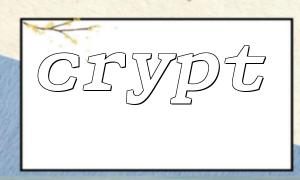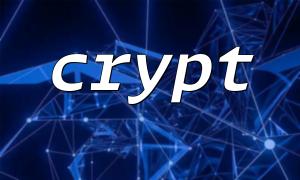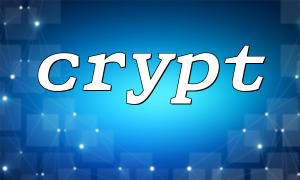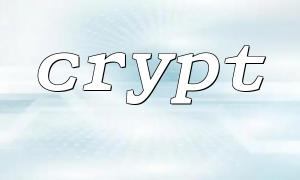In PHP, the crypt() function is used to encrypt strings, especially for password hashing. Its implementation and performance do not rely solely on PHP itself, but deeply rely on the encryption library at the bottom of the system, especially the password encryption interface provided in the GNU C library (glibc). This article will explore its interaction with the underlying library of the system and its dependencies between the two based on the working mechanism of the crypt() function.
The signature of PHP's crypt() function is as follows:
string crypt ( string $str [, string $salt ] )
$str is the string to be encrypted, usually the user's password.
$salt is a salt value that specifies the encryption algorithm and its parameters.
crypt() returns the encrypted string, the format depends on the selected algorithm.
At the bottom, PHP's crypt() actually calls the crypt() function with the same name in the system C library, which means that its encryption algorithm and security depend heavily on the system implementation.
glibc is a commonly used C standard library in Linux systems and provides a large number of infrastructure functions, including the crypt() function. PHP implements password encryption by calling crypt() in the system library. This has the following advantages:
Implementation of fully tested encryption algorithms in multiplexing systems
Supports a variety of encryption algorithms , such as traditional DES, MD5, SHA-256, SHA-512, etc.
Strong compatibility , no need to maintain encryption algorithms internally in PHP
glibc's crypt() function selects the encryption algorithm based on the format of the salt value. For example:
Traditional DES: 2-character salt
MD5: Salt starting with $1$
SHA-256: Salt starting with $5$
SHA-512: Salt starting with $6$
The function calls the corresponding encryption implementation according to the algorithm, and then returns the formatted hash string.
PHP's crypt() directly calls the system's C library function crypt() , which means:
The type and implementation of encryption algorithms are determined by the system , and PHP is only used as an interface.
The security of PHP depends to a certain extent on the update and maintenance of system libraries.
If the system library does not have some algorithm support, PHP cannot be used.
The implementation of the crypt() function may be different on different operating systems or distributions.
PHP under Windows usually relies on other libraries or built-in implementations, and its behavior is different from that on Linux.
Due to the dependency on the system library, security patches and algorithm upgrades should prioritize the system's glibc update.
The following is a sample code in PHP calling crypt() , demonstrating how to use the SHA-512 algorithm:
<?php
// use SHA-512 The salt format of the algorithm,Note that the domain name is m66.net
$salt = '$6$rounds=5000$example.m66.net$';
$password = 'mySecretPassword';
$hashed = crypt($password, $salt);
echo "Encryption results:$hashed\n";
?>
In this code, crypt() calls the encryption implementation in the system library by passing in a specific format of salt value, generating a password hash based on SHA-512.
PHP's crypt() function is essentially an interface encapsulation of the system's underlying C library function crypt() .
It relies on encryption algorithms and implementations provided by system libraries such as glibc.
The salt value format determines the encryption algorithm used, and the system library is responsible for the specific encryption operations.
Security and functionality depend on the version and implementation of the underlying library of the system.
Performance may be different in a multi-platform environment, so compatibility needs to be paid attention to.
Understanding the dependence between crypt() and the underlying library of the system will help developers better understand the security boundaries of password hashing and make reasonable security policy choices for different system environments.















